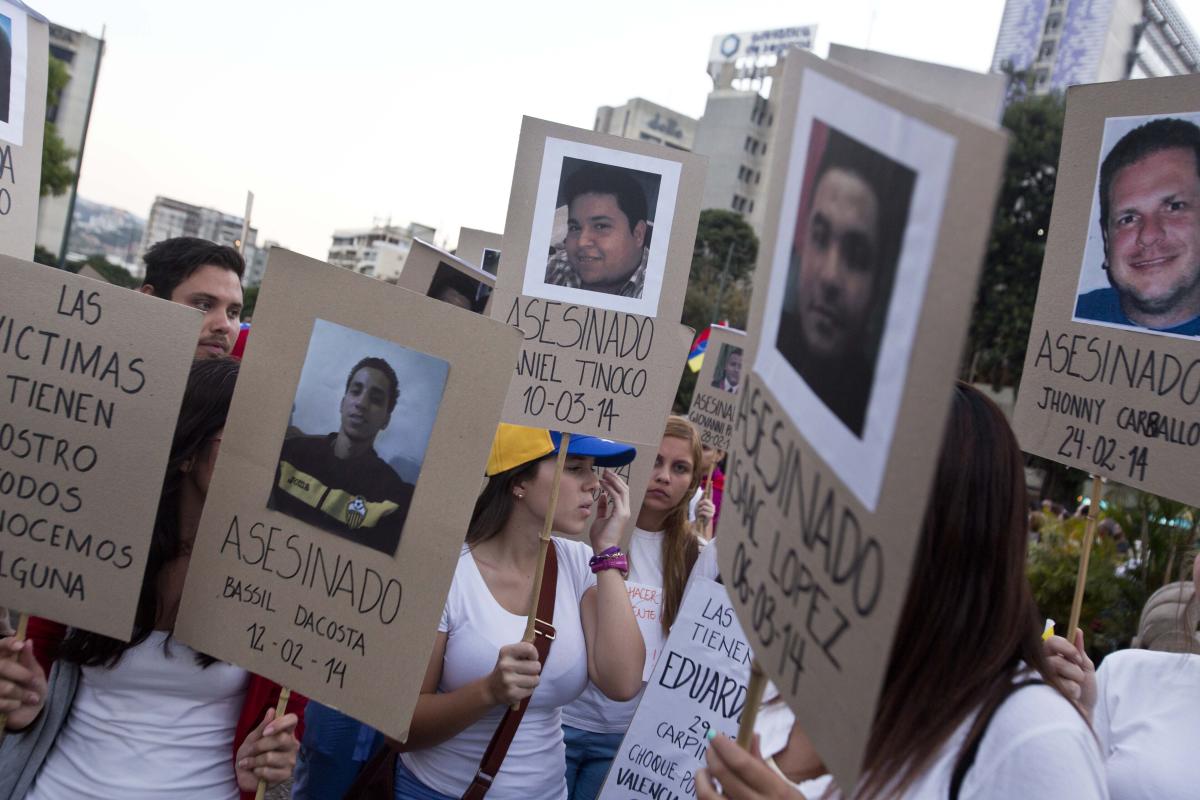BUENOS AIRES, Argentina (AP) — Frustrated by the limits of the tediously slow International Criminal Court and determined that the security agents who allegedly murdered their loved ones do not enjoy absolute impunity, Venezuelans have taken their case against humanity to a federal court 3,000 miles from home — in Argentina.
In a first for Venezuela under the repressive rule of President Nicolás Maduro, a federal court in Buenos Aires on Friday concluded two days of testimony from Venezuelan victims as part of an investigation into alleged human rights violations they say were committed by security forces in 2014, the year after Maduro came to power.
Earlier this year, Argentine prosecutors moved to revive a criminal complaint filed in 2023 by the Clooney Foundation for Justice on behalf of survivors and relatives of those killed in what lawyers call a “systematic scheme” by the state called to suppress dissent.
Prosecutors said the crimes committed by high-ranking members of the Venezuelan National Guard were of “extreme seriousness” and required an immediate investigation.
Several people were flown in from Venezuela for the first pre-trial hearing, which began Thursday in Argentina — a country that has grappled with its own legacy of war crimes and has committed to pursuing war criminals operating outside its borders.
“These testifying are people who have been seeking justice in Venezuela for a long time and have reached the end of where they can go,” said Yasmine Chubin, a legal advocate at the Clooney Foundation, a nonprofit founded by George and Amal Clooney that provides free legal support to victims of human rights abuses. “They continue to fight to hold those responsible accountable, and that’s what led us to bring this case.”
Security forces used heavy-handed tactics to suppress mass anti-government protests, arresting, torturing and killing suspected dissidents. At least 43 people, including security officials and protesters, were killed during the 2014 crackdown.
Venezuelans are struggling to tackle Maduro in their own country. Legal experts say lawsuits against the government often punish lower-level officers while protecting those in power.
The International Criminal Court opened an initial investigation into abuses in Venezuela in 2018 – after an unprecedented referral by five Latin American countries and Canada – but years later the investigation is still in its early stages.
In March, the tribunal in The Hague rejected Venezuela’s appeal, upholding its decision to investigate alleged atrocities in the country. Maduro’s government denies allegations of widespread crimes and says it is already investigating some alleged abuses internally.
Human rights lawyers around the world are increasingly pursuing cases in national courts based on the so-called principle of universal jurisdiction. They argue that the ICC often acts too slowly to directly influence current events.
“The ICC’s capacity is limited as it can only handle a handful of cases,” Chubin said. “The scale of atrocities in Venezuela, which include thousands of deaths and countless other violations such as persecution, arbitrary detention, torture and sexual violence, calls for a broader approach.”
Of the handful of countries that have adopted the principle into their legal systems, Argentina stands out in the region for its unusually favorable record in applying the legal concept to investigate alleged crimes against humanity committed in Spain, Nicaragua and Myanmar.
The foundation said it chose to file its case — complete with 15,000 pages of documentation — in Argentina because of the country’s proximity to Venezuela, its large community of Venezuelan immigrants and its broad interpretation of universal jurisdiction, a product of the transition to democracy in 1983. from a ruthless military dictatorship.
According to the legal principle, neither the defendants nor the plaintiffs need to be residents of the country where the trial is held. The foundation declined to provide details about the several complainants who testified Friday, citing the ongoing dangers they face in Venezuela.
There is no word on how long the process will take, but lawyers say they are encouraged by the speed with which Argentina decided to launch the investigation — just a month after the foundation filed its complaint. While the case is unlikely to lead to any arrests ahead of Venezuela’s July 28 election, any risk of a messy dispute in Argentina’s courts could overshadow the vote.
“Depending on the universal jurisdiction situation, you may be looking for token results. That’s not our case,” said Ignacio Jovtis, senior program manager at the Clooney Foundation for Justice. “We are determined to see things through and achieve concrete results.”
In other words, Jovtis said, the plaintiffs hope to have senior Venezuelan security officials extradited and put on trial in Buenos Aires. The foundation has refused to make the names of the suspects public for fear of giving the suspects advance notice of the case against them.
The Argentine federal prosecutor who took on the case, Carlos Stornelli, was not immediately available for comment.
Thursday and Friday’s hours-long hearings exhausted the plaintiffs, many of whom broke down as they recounted the horrors they endured, Chubin said. But in court in Buenos Aires Friday, they said they felt something like hope.






